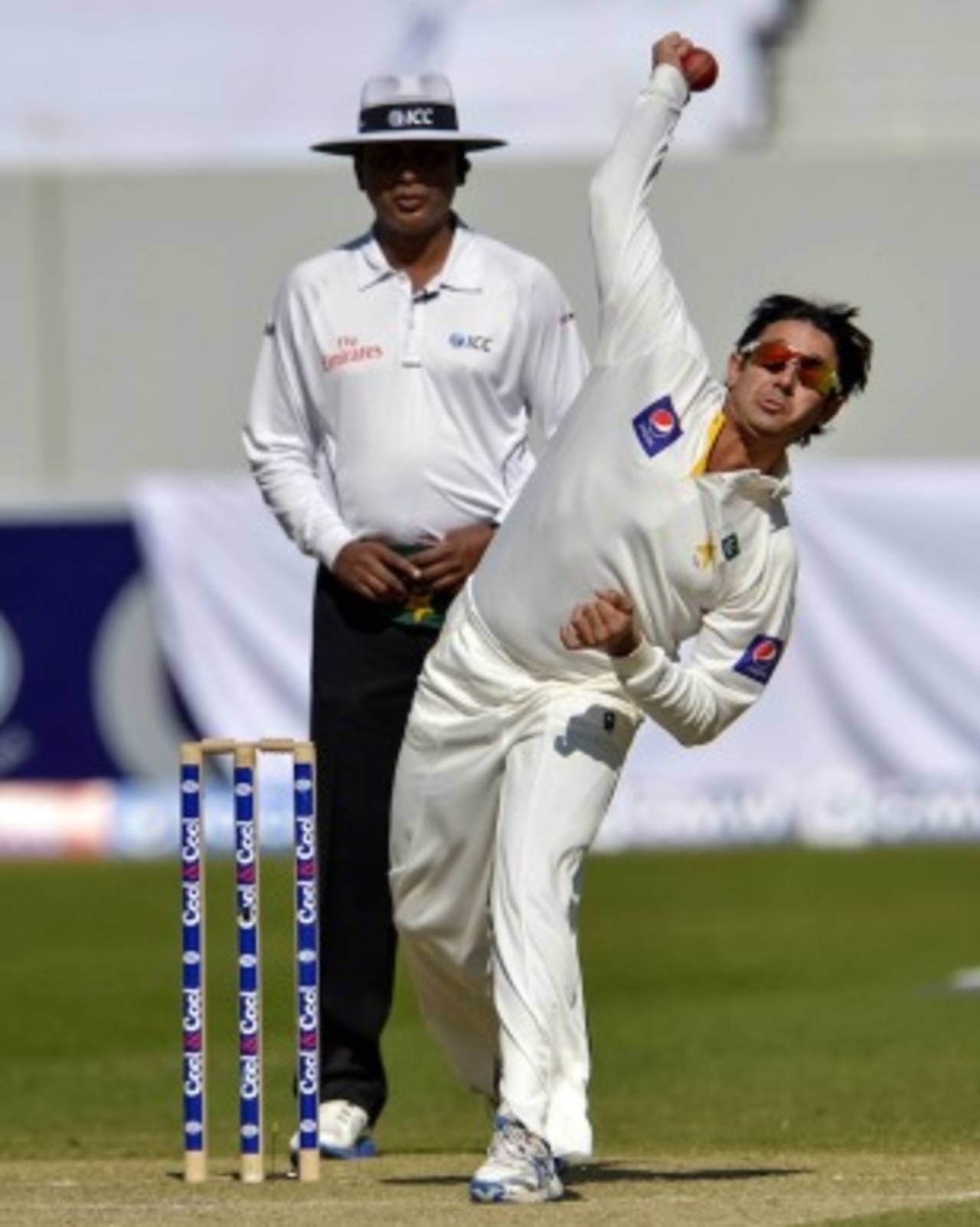ICC rebuts UWA, backs new testing methods
In a response to concerns raised over its drive against chucking, the ICC has defended its processes of identifying and testing bowlers with suspect actions
ESPNcricinfo staff
18-Oct-2014

Saeed Ajmal is the most high-profile casualty of the ICC's recent drive against illegal actions • Associated Press
In a response to concerns raised over its drive against chucking, the ICC has defended its processes of identifying and testing bowlers with suspect actions. In a statement issued on Saturday, the ICC sought to address doubts raised by the University of Western Australia (UWA) - formerly the sole biomechanical testing centre for bowling actions - over the reliability of the tests that have led to several players being banned from bowling in international cricket.
Following recommendations made by its Cricket Committee in June, the ICC encouraged umpires to report suspect actions with greater confidence. Subsequently, five bowlers - Kane Williamson, Sachithra Senanayake, Saeed Ajmal, Prosper Utseya and Sohag Gazi - have been reported, tested, and banned from bowling in international cricket.
"Judging by the results of the testing, their [the Cricket Committee] concerns have been vindicated," the ICC's release said. Rejecting "any suggestion that bowlers are being targeted depending on which region they come from", it stressed that the "concerns of umpires relate solely to the bowling action of the player".
The ICC backed the accuracy and consistency of the procedures used during the testing of these bowlers, and said the ICC's "lead human movement specialists" conducted the tests on every bowler reported since June. "The ICC is confident that the standardised protocol, quality control procedures and extensive training that has been undertaken with staff at the accredited facilities will allow this level of consistency to be maintained."
One of the UWA's concerns about the new testing protocol was the use of two-dimensional match footage to determine whether bowlers are bowling with the same action while undergoing testing. The ICC made "no apology" for this approach.
"Prior to testing, the ICC reminds the bowlers that in order for the test to be valid they must replicate the action displayed in the match footage obtained from the spells cited by the umpires in their report. During the tests, bowlers are provided with comparative high speed video feedback and if a bowler appears to be using a different action during the test, they are encouraged to replicate their match action. The ICC makes no apology for this."
In March 2014, the UWA had withdrawn from its partnership with the ICC. Jacqueline Alderson, an associate professor in biomechanics at UWA, had said this was because the UWA was "aggrieved by the ICC leveraging our research without our knowledge or permission."
The ICC sought to refute this, and said its new testing protocol had taken in "published research in this area, the recommendations from the ICC's expert panel that looked at the issue of testing protocols in 2010 (recommendations that were not implemented by the UWA), and particularly the expertise and research of the ICC's lead biomechanist, Dr Andrea Cutti, much of which was completed before he started working for the ICC."
Rebutting "any inference that it has copied the UWA's methods, or misused the UWA's intellectual property in developing its testing protocol," the ICC said the "recent articles present no evidence to support this contention, and instead include a number of points that contradict this assertion."
The ICC also suggested that the UWA had "unfairly maligned" the staff at the new testing centres by raising concerns over their experience and training, and said both its newly accredited centres in Brisbane and Chennai had "world-class facilities and highly-qualified staff", who had "tested dozens of bowlers using the ICC testing protocol".
The ICC stated its aim of accrediting testing centres in each of its five regions, and said it was in talks with a university in South Africa, following which it would seek to identify a facility in the Americas. "Facilities in several other countries have shown interest in earning ICC accreditation to assist them with screening bowlers from their domestic competitions."
Regarding the "accusations made by a UWA representative that the ICC has not subjected its testing protocol to peer scrutiny", the ICC said it had provided its protocol to "a number of highly-credentialed biomechanists associated with five different tertiary institutions across the world" but not to the UWA, since it had ended its relationship with the ICC, or to "third parties that have approached the ICC to obtain the testing protocol on behalf of UWA."